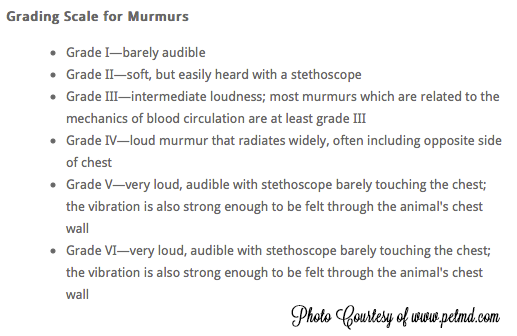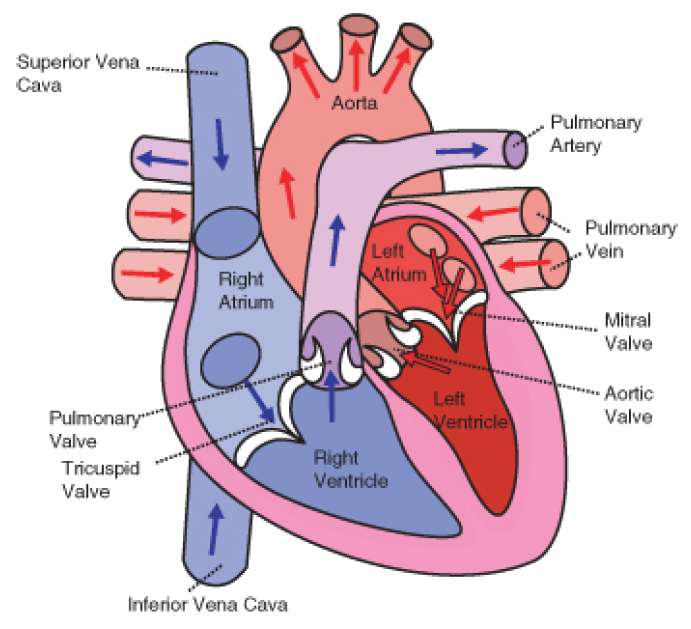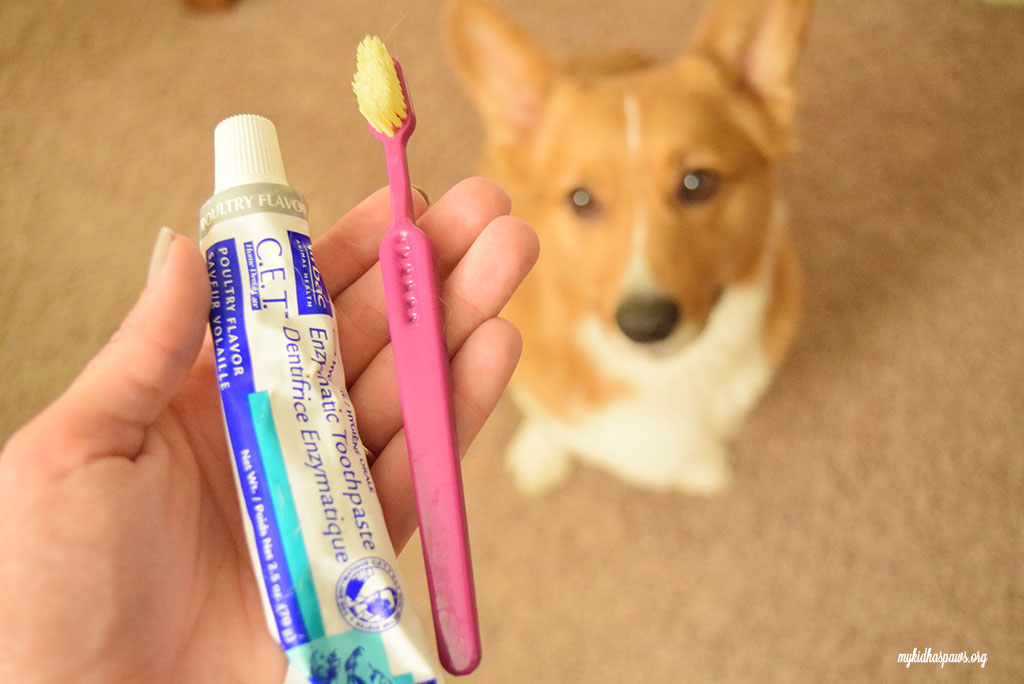This post was originally published on 12/22/2014, but has been updated to provide you with even more information. Welcome to another edition of Medicine Versus Mom where Carol Bryant from Fidose of Reality and I discuss veterinary medical issues experienced by pets and their families.
Today, I want to discuss heart murmurs. Heart murmurs can occur for a variety of reasons, in both dogs and cats, and can be a long term issue for your pet.
While working at the veterinary hospital I met quite a few pets who had heart murmurs. Some of which were so severe that you could even feel them once you knew what you were looking for. However, most heart murmurs are detected with a stethoscope. Today our goal is to provide you with clarity on heart murmurs and what you can do for your pet if they have been diagnosed with a heart murmur.
What is a Heart Mumur?
During my undergraduate degree, I was fortunate enough to take a physiology course. During that course, I learned that a heartbeat is actually the sound of two valves closing. When you hear a heartbeat, you may not actually distinguish that what you are hearing is not one sound, but two different sounds occurring within milliseconds of each other. The heartbeat is a lub-dub, not just a dub.
A murmur is an abnormal extra sound (which can sometimes drown out the normal sounds). Murmurs most commonly occur between the “lub” and the “dub” and have a “shooshing” or “whooshing” quality. – Dr. Mark Rishniw, ACVIM
Understanding that a heartbeat is a series of sounds rather than one, will really help you understand what a heart murmur is, and what exactly you are hearing. The two separate sounds are the result of multiple valves closing as blood flows through the heart.
The picture above provides a visual example of how blood flows through the heart.
Blood initially enters the heart in the right atrium. The blood then passes through the tricuspid valve into the right ventricle which pumps the blood through the pulmonic valve into the lungs to pick up oxygen (among other things). The oxygenated blood then enters the left atrium. Blood in the left atrium passes through the mitral valve to reach the left ventricle, which then pumps the blood through the aortic valve out to the rest of the body. (Veterinary Partner).
These valves exist to keep blood flowing forward, and prevent it from flowing backward. When the valve is not opening or closing properly, this disturbs the blood flow and creates turbulence, which causes a murmur (Veterinary Partner).
A heart murmur is an extra heart vibration that occurs when there is disturbance in the blood flow (PetMD).
It is imperative to understand that a murmur is not an arrhythmia. An arrhythmia is defined by irregularity and possibly erratic rate of the heartbeat (Merck). Basically, if the flow of the blood is not disrupted, but the rhythm (lub-dub) sounds irregular, than you are dealing with an arrhythmia, not a murmur.
What causes a heart murmur?
According to PetMD, murmurs are caused by the following:
- Disturbed blood flow caused by high blood flow through a normal or abnormal valve.
- Flow disturbances identified by forward flow through abnormal valves.
- Flow disturbances identified by regurgitant blood flow due to an abnormal valve.
According to Veterinary Partner, the most common murmurs in dogs are associated with leaky mitral valves. Sometimes, murmurs are caused by holes between two of the chambers in the heart, or narrowing of a chamber or vessel, or anemic blood.
What are the different kinds of murmurs?
- There are benign (non-harmful) murmurs in which the cause of the murmur is not associated with a known heart disease. These kinds of murmurs are not usually found in adult dogs, but can be found in puppies and cats of all ages. Characteristically, they have a soft sound and tend to be intermittent. Heart murmurs brought on by anemia or excitement often fall into this category (Veterinary Partner).
- Congenital Murmurs are present from birth. The defect that is causing the murmur is always there, but may not be heard until later than life (Veterinary Partner).
- Acquired Murmurs are brought on throughout the course of the pet’s life, but they are often associated with a heart or valve disease (Veterinary Partner).
Grading Scale
Murmurs are classified on a grading scale. Grade of a murmur is determined by sound (time and intensity), configuration, and location (PetMD).

What do they sounds like?
A veterinarian that I worked for at Acorn Veterinary Clinic in Davis, California explained it to me the best. Dr. Jackman said that a heart murmur sounds like a washing machine as opposed to a lub-dub, this analogy would help me identify murmurs very well in the future.
The following videos are a series of audio clips, that show a view of the valves and how they are working with each type of murmur. Make sure to have your volume on, but I promise you this is very interesting. (I also want to thank Steven Farmer, DO for creating these videos).
First, this is the sound of a normal heart.
This second video is an Aortic Stenosis Murmur, which is defined but the AKC Canine Health Foundation as the narrowing of the aortic valve, or just above it. Listen for the “washing machine sound”.
This video is an Aortic Regurgitation Murmur, defined by Merck Manuals as back flow of blood from the aorta into the left ventricle.
This last video is a Mitral Regurgitation Murmur (the most common in dogs) , which can be defined by VCA Hospitals as back flow from the left ventricle to the left atrium.
If you were able to hear subtle differences between these videos, then you have a great ear for heart murmurs. These are very challenging to distinguish, but will give you an idea of what your veterinarian is listening for.
Symtoms
If your pet’s murmur is due to a structural heart diseases, they may display signs of congestive heart failure, which according to (PetMD) includes: coughing, exercise intolerance, or general weakness.
What should I do if my pet has a murmur?
The short answer is, work with your veterinarian. There are so many different classifications and underlying causes for murmurs, that your veterinarian will need to help you determine if treatment is necessary, if there are any structural issues you should be worried about, and what you can do to help your pet.
Our dog Maui (who passed away in 2015) had a murmur since 2010, and lived a healthy and full life (she had epilepsy, but that wasn’t related to our knowledge). Maui was not on medication for any heart issues until she was diagnosed with heart failure in the fall of 2014. We miss you Mau Mau <3!

Have you ever had a pet with a murmur?
To learn more about heart murmurs, please visit Carol’s Fidose of Reality to hear her Mom perspective on this same topic!






Jana Rade
December 22, 2014 at 3:43 pmLove the article and particularly the videos. Great find.
Jana Rade recently posted…Adoption Monday: Cagney, Labrador Retriever Mix, Deerfield, NH
Rachel
January 21, 2015 at 7:03 pmThank you Jana!
Carol Bryant
December 22, 2014 at 4:05 pmI admire so much that you share this important info, Rachel. My Brandy lived with a 2/6 murmur her whole life and we are so grateful it never progressed. Happy Holidays to you and your pack! See you in 2015!~
Carol Bryant recently posted…Do Not Wish Pit Bulls a Merry Christmas
Rachel
January 21, 2015 at 7:04 pmCarol, I didn’t know Brandy had a heart murmur. I am so glad it never progressed further and I am glad you liked the post! *Hugs*
Carleen
December 22, 2014 at 6:03 pmThis was really interesting! I never gave a lot of thought to heart murmurs.
Carleen recently posted…If Our Pets Sang Christmas Carols
Rachel
January 21, 2015 at 7:04 pmThanks Carleen! Thank you for stopping by!
Mary @ Stale Cheerios
December 22, 2014 at 6:20 pmWhat an informative post! Thanks for all this good info.
And Maui looks like such a sweetheart. She also looks like she is in great shape for 14!
Rachel
January 21, 2015 at 7:05 pmThank you Mary! I certainly think Maui looks great too! She is such a sweetheart!
It's Dog or Nothing
December 22, 2014 at 6:41 pmI have a very minor heart murmur, but I never even gave it a thought with my pups. This was such great information.
It’s Dog or Nothing recently posted…A Dog and His Paper
Rachel
January 21, 2015 at 7:07 pmThank you so much!
Barbara Rivers
December 22, 2014 at 6:54 pmI have never had to deal with heart murmurs, so it was very interesting learning about them today. I particularly liked the washing machine analogy ~ that’s easy to remember!
Barbara Rivers recently posted…Winning Zuke’s Treats: Way to Start the Christmas Week!
Fur Everywhere
December 22, 2014 at 9:35 pmThanks for sharing all of this. It is really interesting to hear the difference between the murmurs and regular heartbeat. Now I’ll know what to listen for with my kitties’ hearts.
Fur Everywhere recently posted…Mancat Monday
Slimdoggy
December 23, 2014 at 5:27 amInteresting lesson…I have a slight murmur myself, so it was good to understand!
Slimdoggy recently posted…Is Vegetable Oil Good for Dogs?
Connie
December 29, 2014 at 5:56 amI have had several cats with murmurs.. most grew out of it, one did not. The vet at the time suggested multiple medications which ruined her quality of life so we stopped them all opting for quality vs quantity. She lived to be 16 yrs old and died of cancer..
Connie recently posted…Monday Morning Update
Jeanne Melanson
December 29, 2014 at 10:25 amInteresting article. It caught my attention because I have a murmur too, of the mitral valve variety. Thanks for the audio. I’ve never heard a murmur before. Peace!
Jeanne Melanson recently posted…Alpo Wholesome Dog Biscuit Review, #AlpoDogBiscuit
Help for Dogs with a Heart Murmur – Crazy Dogs
January 30, 2018 at 1:03 am[…] friend, former veterinary technician, Rachel Sheppard of My Kid Has Paws, gives her take on heart murmurs in dogs. Be sure to visit and see what she has to […]
M. K. Clinton
January 30, 2018 at 3:17 pmI had a cat when I was young that had a heart murmur. It is scary.
M. K. Clinton recently posted…It’s Only Tuesday?!?